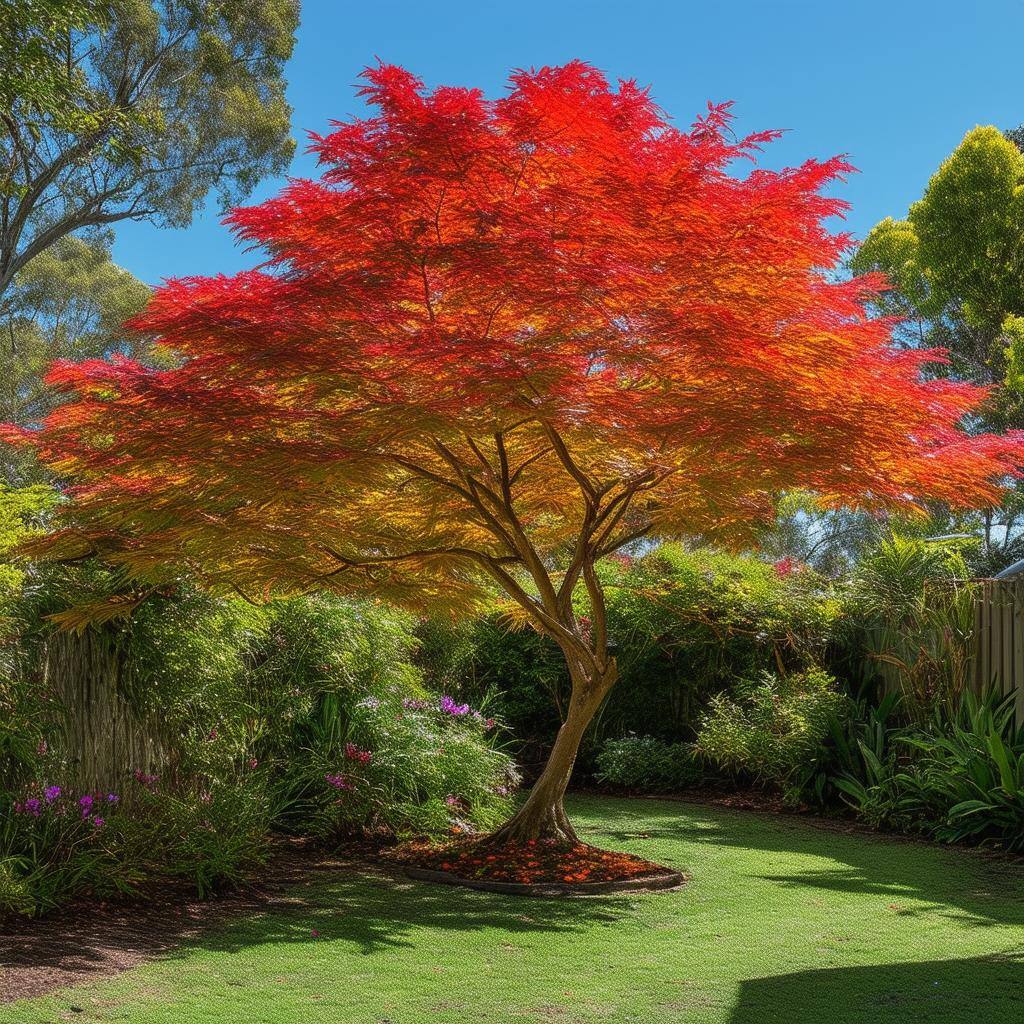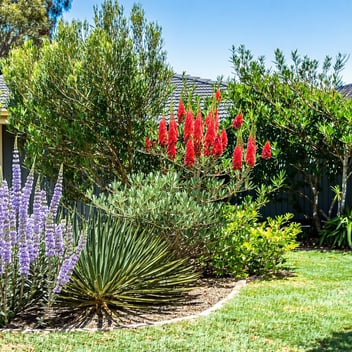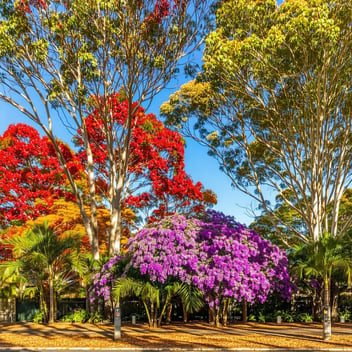Enhancing Small Gardens with Deciduous Trees in South East Queensland
In the balmy climes of South East Queensland, small gardens can be transformed into verdant sanctuaries through the strategic inclusion of deciduous trees. These arboreal gems offer a harmonious blend of seasonal shade, vibrant foliage, and ecological benefits, making them indispensable in compact landscapes.
Benefits of Deciduous Trees in Compact Spaces
Seasonal Shade and Sunlight Management
Deciduous trees provide a natural canopy during the sweltering summer months, offering respite from the sun's relentless rays. As autumn approaches, their shedding leaves allow precious sunlight to permeate, warming the space and fostering a comfortable microenvironment.
Aesthetic Appeal through Foliage Variation
The cyclical metamorphosis of deciduous trees introduces a dynamic visual element to gardens. From the tender greens of spring to the fiery hues of autumn, these trees orchestrate a captivating display that enlivens any outdoor space.
Top 10 Deciduous Trees for Small Gardens
1. Japanese Maple (Acer palmatum)
With its intricate, lobed leaves and graceful silhouette, the Japanese Maple is a paragon of elegance. In autumn, its foliage ignites in shades of crimson and gold, creating a mesmerizing spectacle.
2. Crepe Myrtle (Lagerstroemia indica)
Celebrated for its exuberant summer blooms in hues ranging from white to deep purple, the Crepe Myrtle also boasts a smooth, mottled bark that adds winter interest. Its moderate size makes it ideal for limited spaces.
3. Frangipani (Plumeria rubra)
The Frangipani's fragrant, waxy flowers and sculptural branches evoke a tropical ambiance. Thriving in sandy, well-drained soils, it reaches up to 5 meters, making it suitable for small gardens.
4. Chinese Tallow Tree (Triadica sebifera)
This resilient tree showcases vibrant autumn foliage in shades of yellow, orange, and red. Its adaptability to various soil types and compact form make it a versatile choice for urban gardens.
5. Illawarra Flame Tree (Brachychiton acerifolius)
Renowned for its brilliant scarlet blossoms that appear in late spring, often when the tree is leafless, the Illawarra Flame Tree serves as a striking focal point. Its moderate height suits smaller landscapes.
6. Queensland Bottle Tree (Brachychiton rupestris)
Distinguished by its bulbous trunk, which stores water, the Queensland Bottle Tree is both functional and ornamental. Its unique form adds architectural interest, and it adapts well to various soil conditions.
7. Red Cedar (Toona ciliata)
A majestic native, the Red Cedar features pinnate leaves that turn reddish before shedding. Its tall stature and straight trunk make it a stately addition, providing habitat for various fauna.
8. Tuckeroo (Cupaniopsis anacardioides)
The Tuckeroo is a handsome small tree with a solid trunk, attractive foliage, and a dense, rounded crown. Its bright orange berries add visual interest, and its compact size suits small gardens.
9. Native Gardenia (Randia fitzalanii)
Also known as the Native Gardenia, this lush evergreen tree grows up to 6 meters in height and 2-4 meters wide. It features scented starry white flowers with a gardenia fragrance, which bloom in spring.
10. Japanese Persimmon (Diospyros kaki)
Beyond its ornamental appeal, the Japanese Persimmon offers delectable fruit. Its broad leaves provide ample shade, and in autumn, the tree adorns itself with golden-orange foliage and succulent persimmons.
Considerations for Planting Deciduous Trees
Soil Preparation and Drainage
Ensuring well-drained, fertile soil is paramount. Amending the planting site with organic matter enhances nutrient availability and promotes robust root development.
Sunlight Exposure and Spacing
Selecting a location that receives adequate sunlight is crucial for optimal growth. Proper spacing prevents competition for resources and allows each tree to flourish without constraint.
Maintenance Practices
Pruning Techniques for Shape and Health
Regular pruning during dormancy helps maintain the desired form and removes any diseased or damaged branches, fostering overall vitality.
Watering Schedules and Fertilization
Establishing a consistent watering regimen, particularly during dry spells, ensures sustained health. Periodic fertilization with balanced nutrients supports vigorous growth and enhances resilience.
Environmental Impact
Supporting Local Fauna
Deciduous trees provide habitats and food sources for native wildlife, including birds and insects, thereby enriching the local ecosystem.
Enhancing Microclimates
The seasonal dynamics of these trees contribute to microclimate regulation, offering cooling effects in summer and allowing solar warmth during cooler months.
Integrating Deciduous Trees for Year-Round Beauty in Small Gardens
Incorporating deciduous trees into compact gardens in South East Queensland offers a harmonious blend of aesthetic appeal and environmental benefits. By thoughtfully selecting species that thrive in the local climate, gardeners can create dynamic landscapes that evolve with the seasons, providing shade, vibrant foliage, and habitats for native fauna. These trees not only enhance the visual charm of small spaces but also contribute to ecological balance, making them invaluable additions to any garden.




